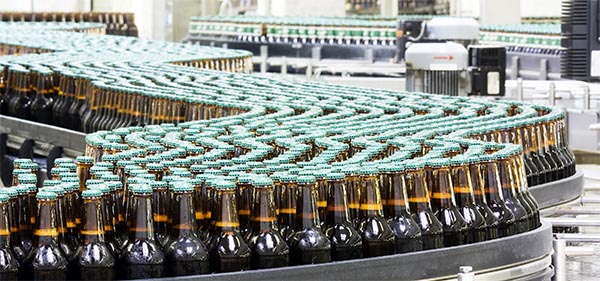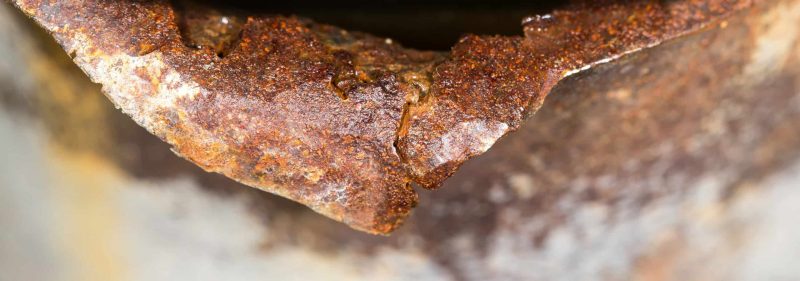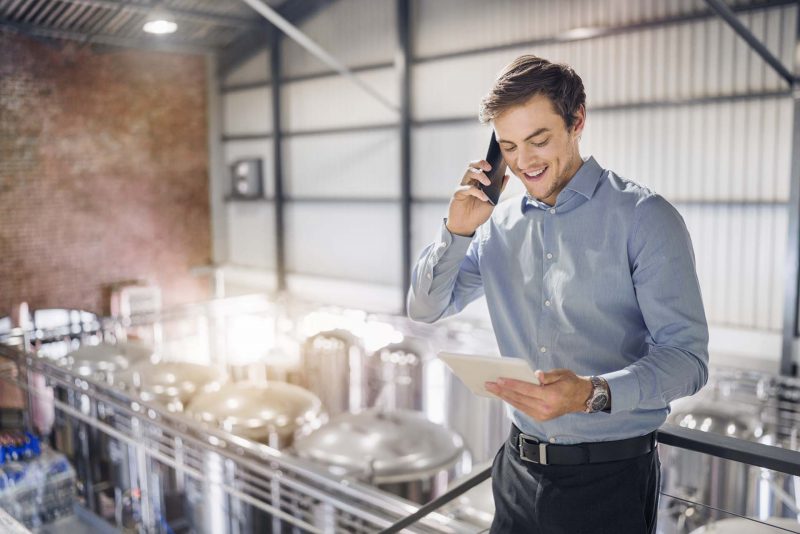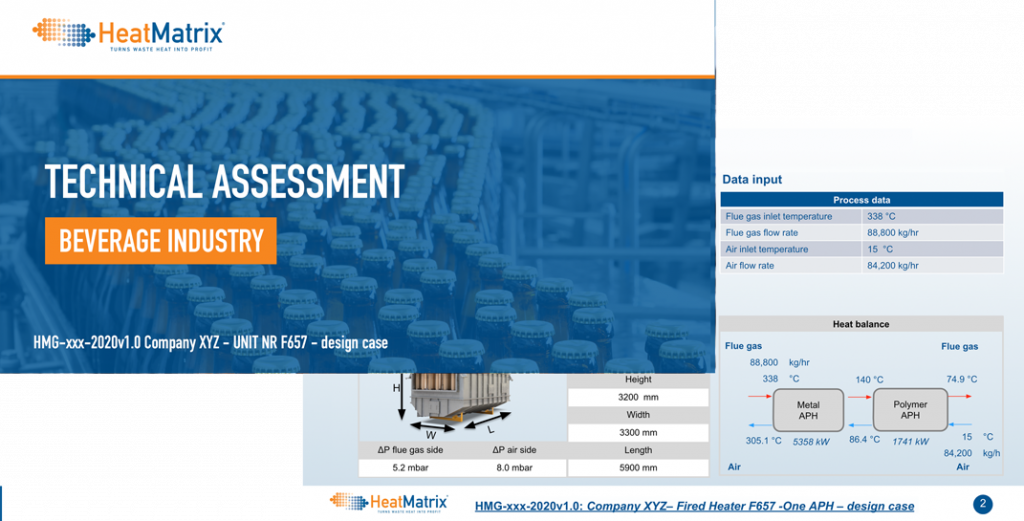Waste heat recovery systems for Flue gas and Exhaust air in the Beverage industry
Corrosion and fouling problems limit heat recovery in breweries, distilleries and soft drinks plants. We design and deliver a robust heat recovery system for your plant so you can recover more heat.
15% of energy is lost by flue gas or exhaust air leaving your stack
What is keeping you from recovering this waste heat?

Complexity?
It is complex to determine the best way to lower your energy consumption.

Corrosive or fouling flue gases?
Your flue gas is potentially corrosive or fouling.

The business case?
HeatMatrix engineers and manufacturers heat exchangers to recover industrial heat and improve energy efficiency for the Beverage industry
Save up to 10% energy on your thermal process
Recover waste heat - that is now lost - from flue gas or exhaust air
- Technical assessment by process engineers
- Corrosion and fouling resistant systems
- Pay-back time 3 - 5 years
Your thermal process has waste heat recovery potential
Recover more heat on steam boilers
Your flue gas is corrosive when you burn biogas, oil or coal. Recovery of additional heat below the acid dew point is however possible. The heat is used to preheat combustion air or water
Waste heat recovery for Steam boilers
Your flue gas is corrosive when you burn biogas, oil or coal. Recovery of additional heat below the acid dew point is however possible. The heat is used to preheat combustion air or water
Waste heat recovery for CHP systems
How waste heat recovery systems work
Capture waste heat
When hot flue gas leaves the stack, it still contains a significant amount of energy. Our heat recovery system captures this heat from steam- or hot water boilers, or CHP systems.
Preheat combustion air or water
Combustion air, boiler feed water, make-up water, CIP water or building heating are warmed up with the captured waste heat. This directly reduces the consumption of fossil fuels.
Our waste heat recovery systems for Breweries, Distilleries and Soft Drinks plants
Polymer Air Preheater
Warm up combustion air by extracting heat from flue gas. The air preheater is corrosion resistant, easy to maintain and to clean.
Stainless Steel or Polymer Economiser
Carlsberg
4% boiler efficiency increase
Within the Together Towards ZERO program, Carlsberg strives to make their breweries more sustainable. One of the steps taken in their Ukraine brewery is using a biogas fired steam boiler.
Due to the usage of biogas, high concentrations of sulphur elements can be found in the flue gas. If the flue gas is cooled down, these sulphur components condense and form sulphuric acid which is very corrosive. To prevent this from happening, Carlsberg operated their system such that the flue gas was at a high temperature (>140 °C) leaving the stack. Additional heat present in the flue gas was not used.
HeatMatrix installed a polymer air preheater which allowed Carlsberg to cool to temperatures below the acid dew point and achieve additional heat recovery on their steam boiler. There are no corrosion issues because of the corrosion resistance of the polymer used in the HeatMatrix APH. Based on the success in Ukraine, Carlsberg Serbia introduced the same solutiton on their biogas fired boiler.
Your path to lower CO2 emissions, energy consumption and costs

Technical assessment
Heat exchanger design and Business Case
Realize Project delivery
HeatMatrix will design, deliver and, upon request, install a complete heat recovery system on your site, so you don’t have to worry about the implementation.
FAQ's
How can I improve the efficiency of my boiler?
The thermal efficiency is the precentage of the combustion energy (Lower Heating Value) that is effectively converted to steam. The remainder of the heat is lost via the stack. The efficiency of a steam boiler lies in the range of 85 - 95%. By installing an economiser or an air preheater, the loss of heat in the flue gas is reduced and thereby the boiler efficiency is improved and CO2 emissions are reduced.
What causes corrosion problems of flue gas?
What is the business case and pay-back time?
Making your boiler more efficient reduces its fuel consumption and therefor lowers fuel costs. Clients have improved their efficiency by 5 to 10% and achieved payback times on the project investment in the range of 3 to 5 years.
Technical assessment of waste heat recovery for your beverage plant
- Analysis of your thermal process
- Minimal input data required
- Business case on your savings potential

FAQ's
How to reduce the energy consumption in a Beverage plant?
The steam boiler(s) and Wort boiler (in case of a brewery) are sources of waste heat. Improving energy efficiency of the beverage plant process can be achieved by recovering this waste heat. The Wort boiling step is one of the major energy consumers in the brewing process. Recovered energy can be directly integrated in the process or used to generate hot process/washing water.
Payback time of waste heat recovery systems in a Beverage plant?
Payback times for waste heat recovery in breweries or beverage plants will be in the range of 3-5 years. A heat recovery scan provides the best starting point to determine the best integration of waste heat into the plant.
